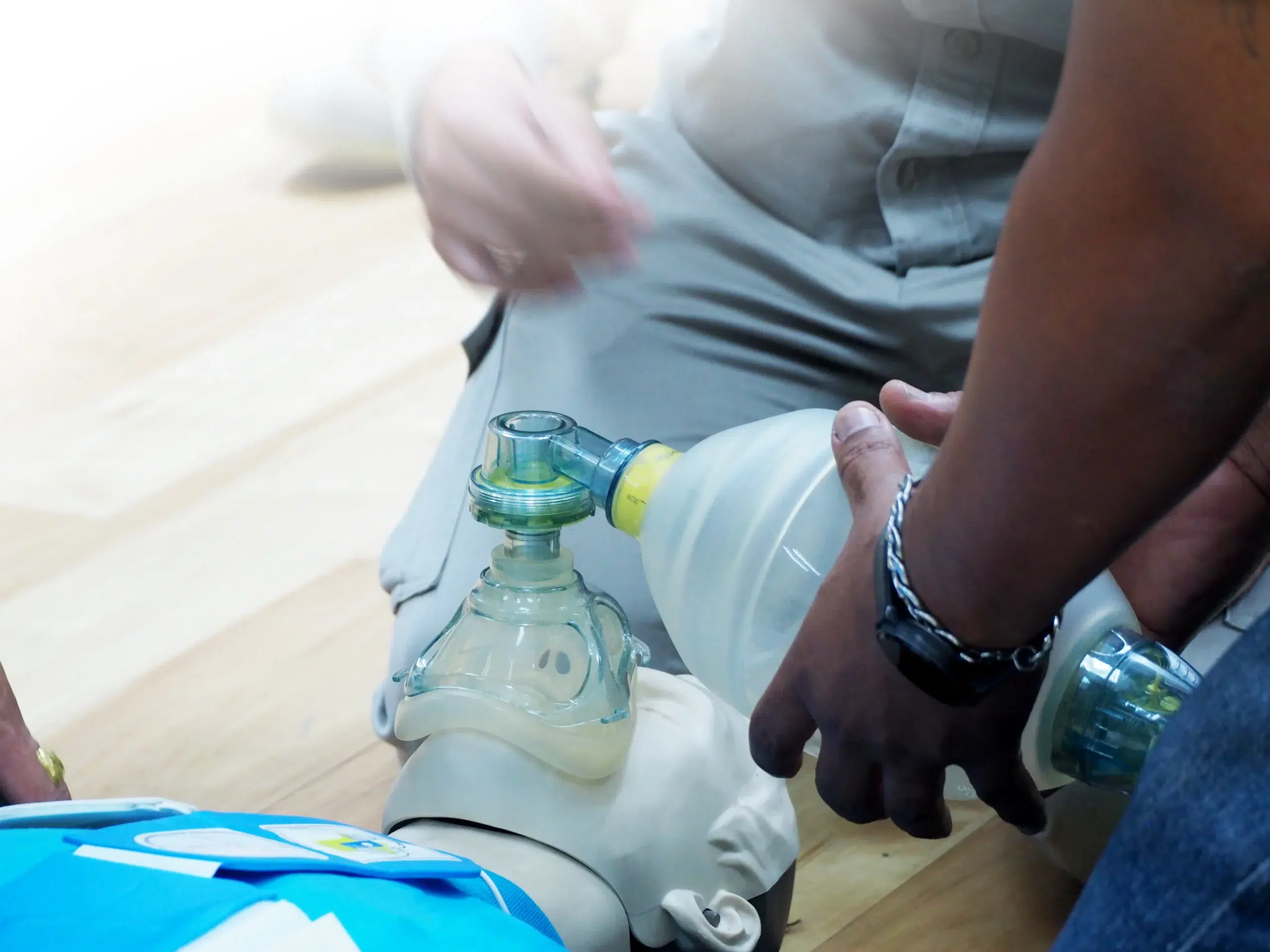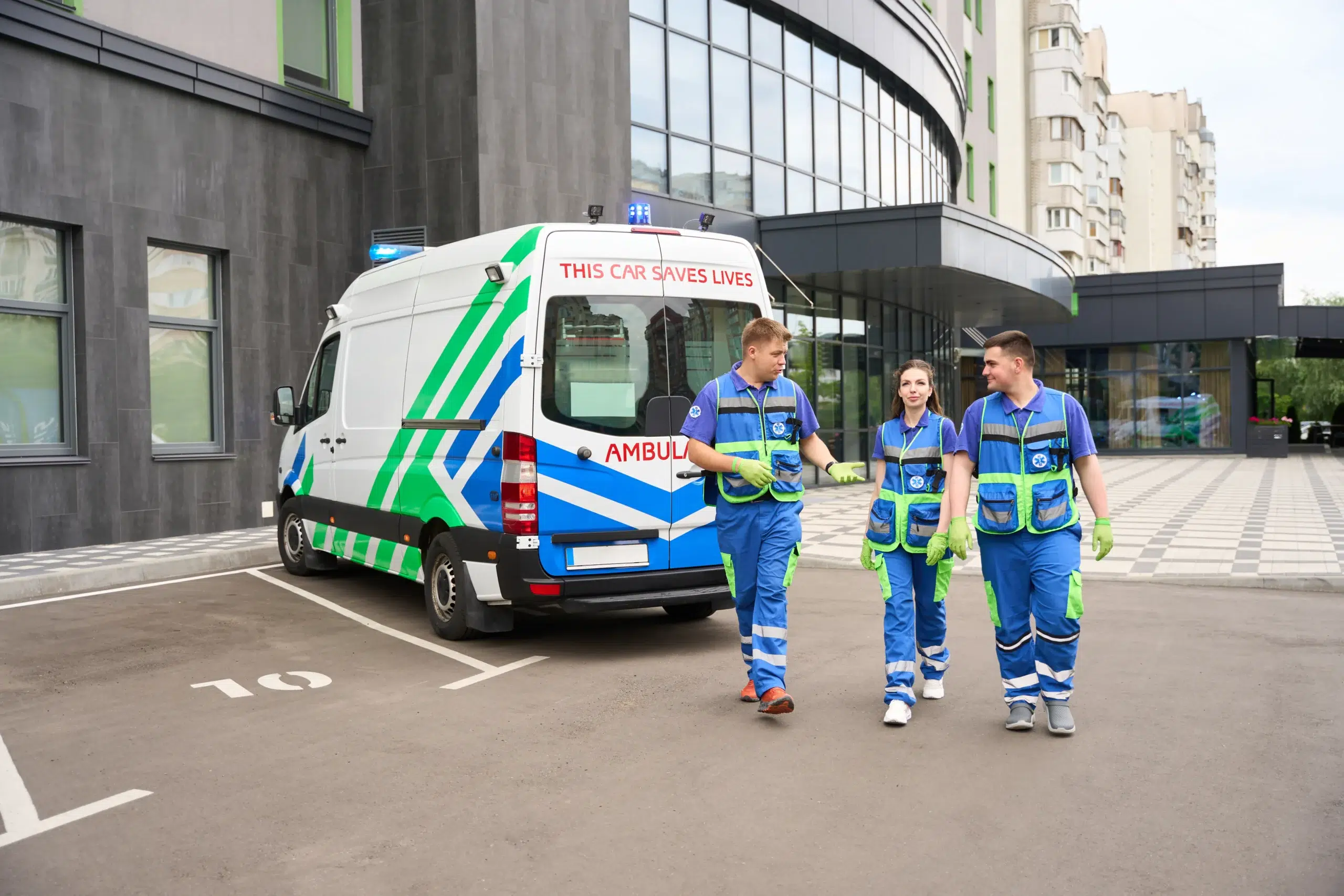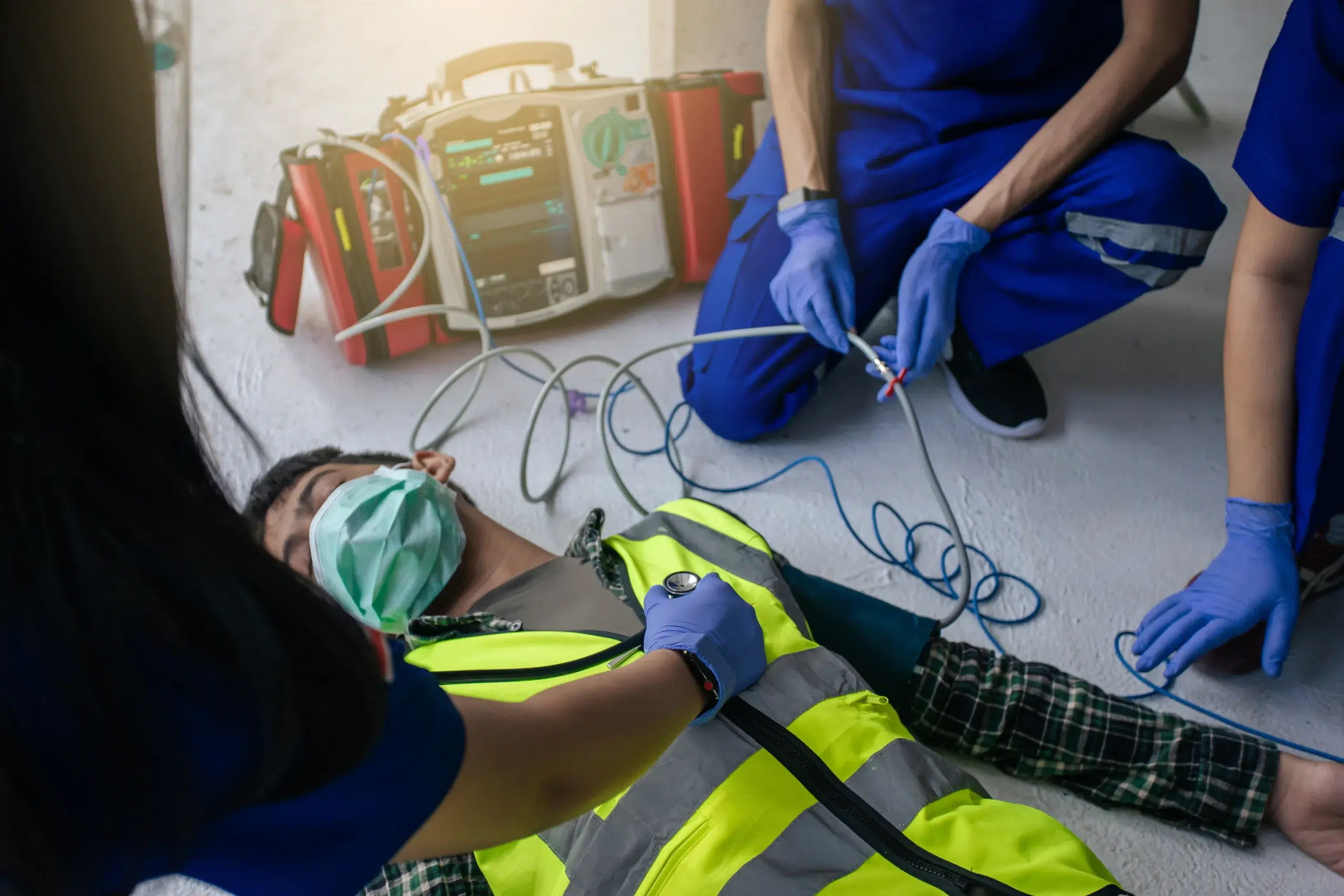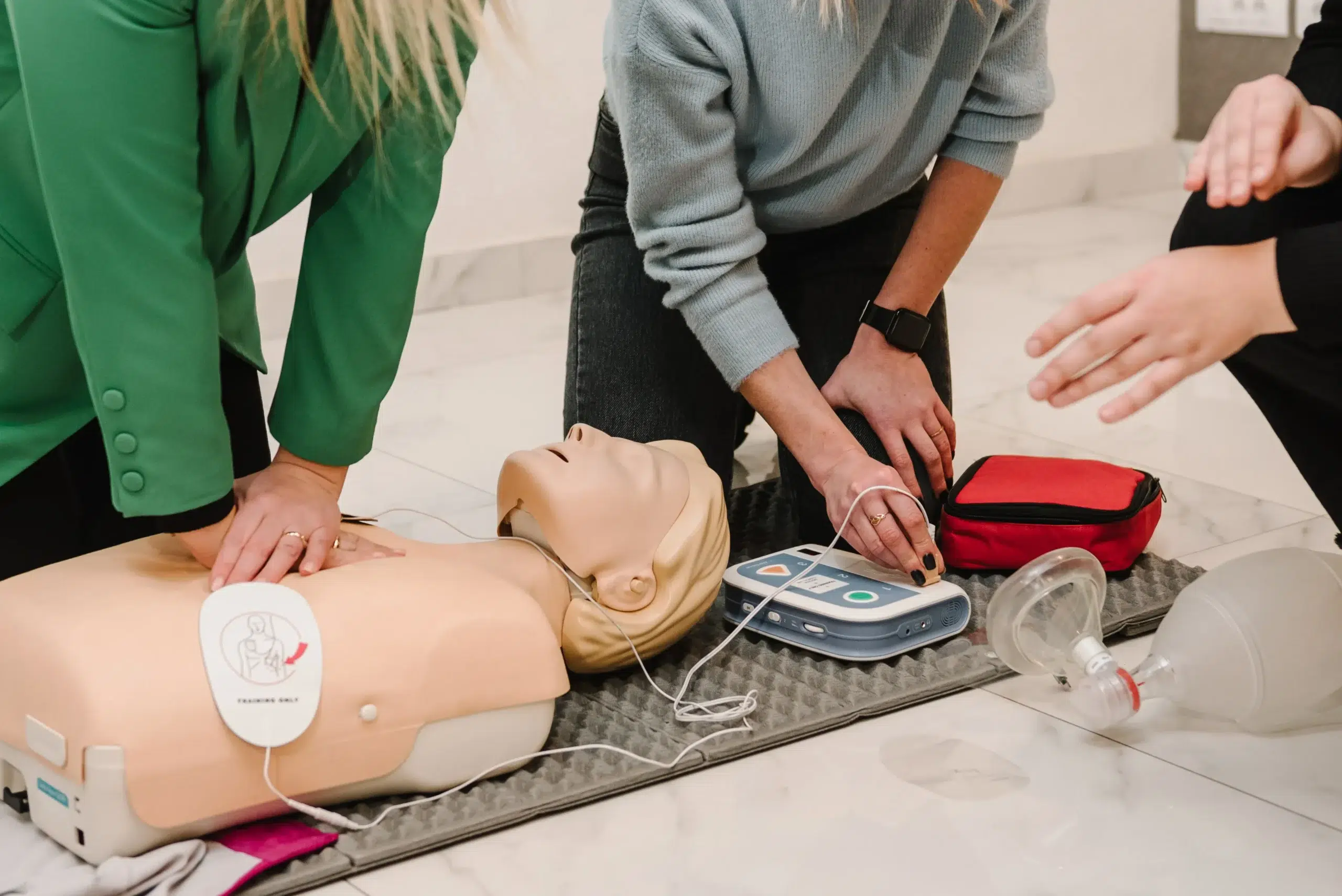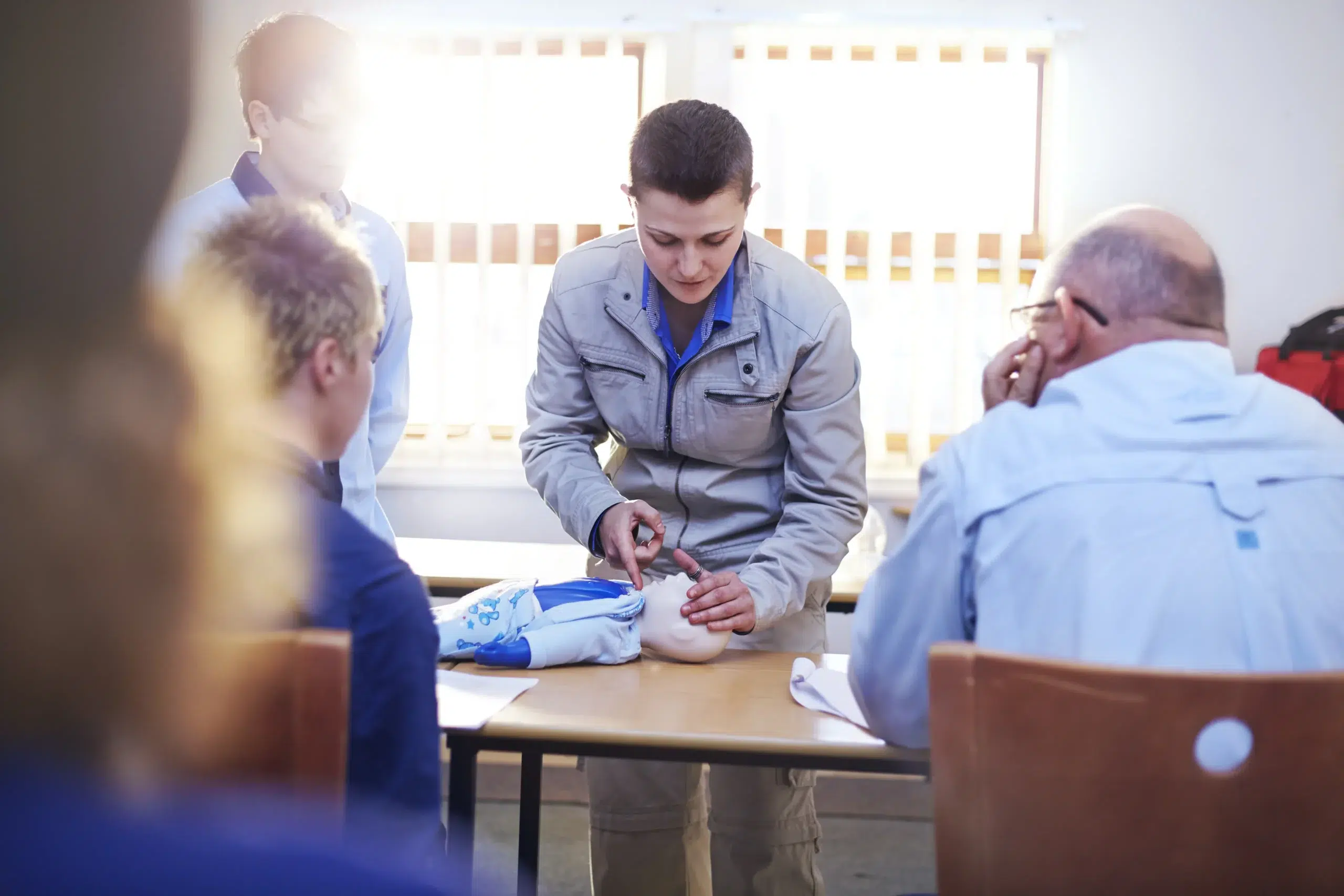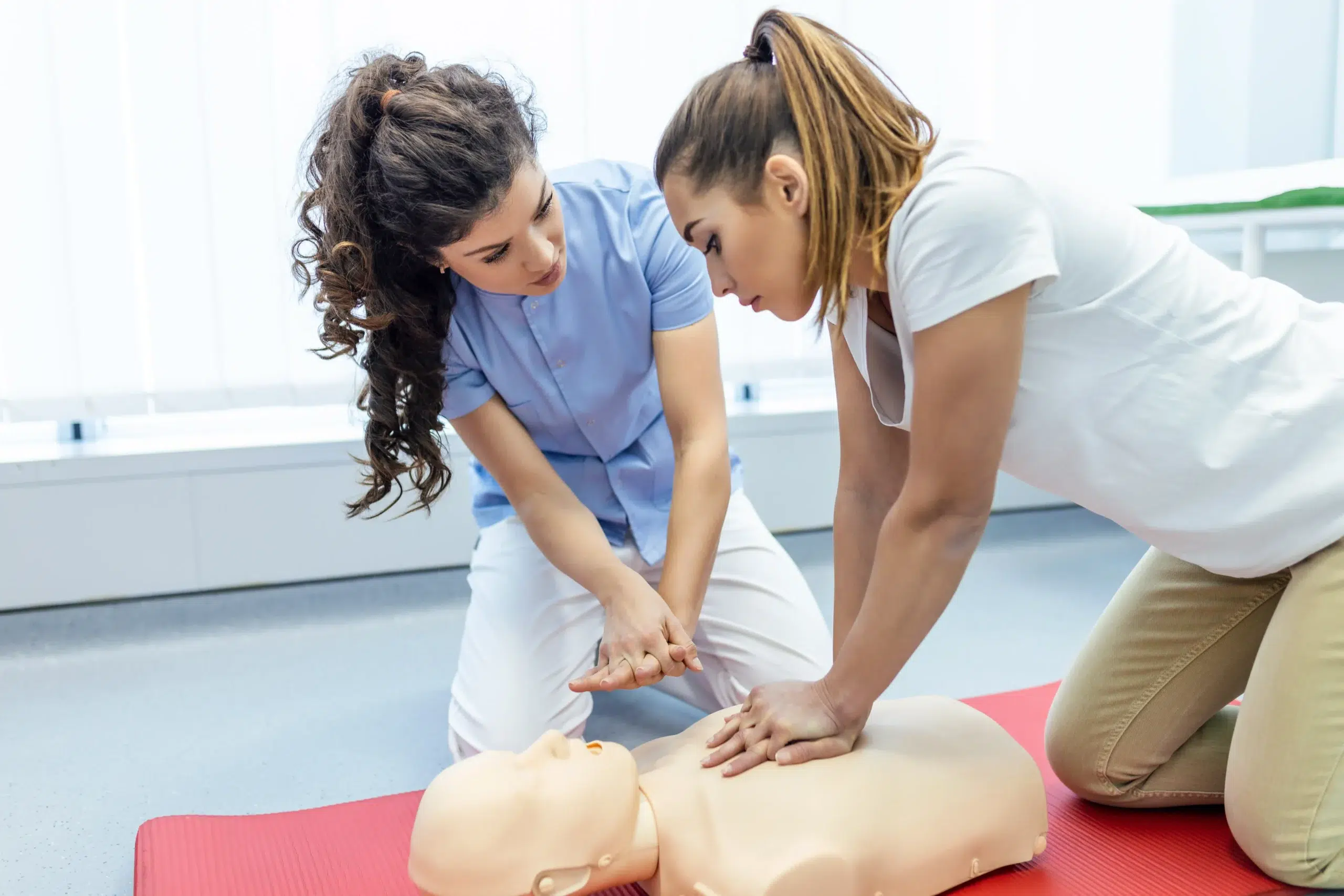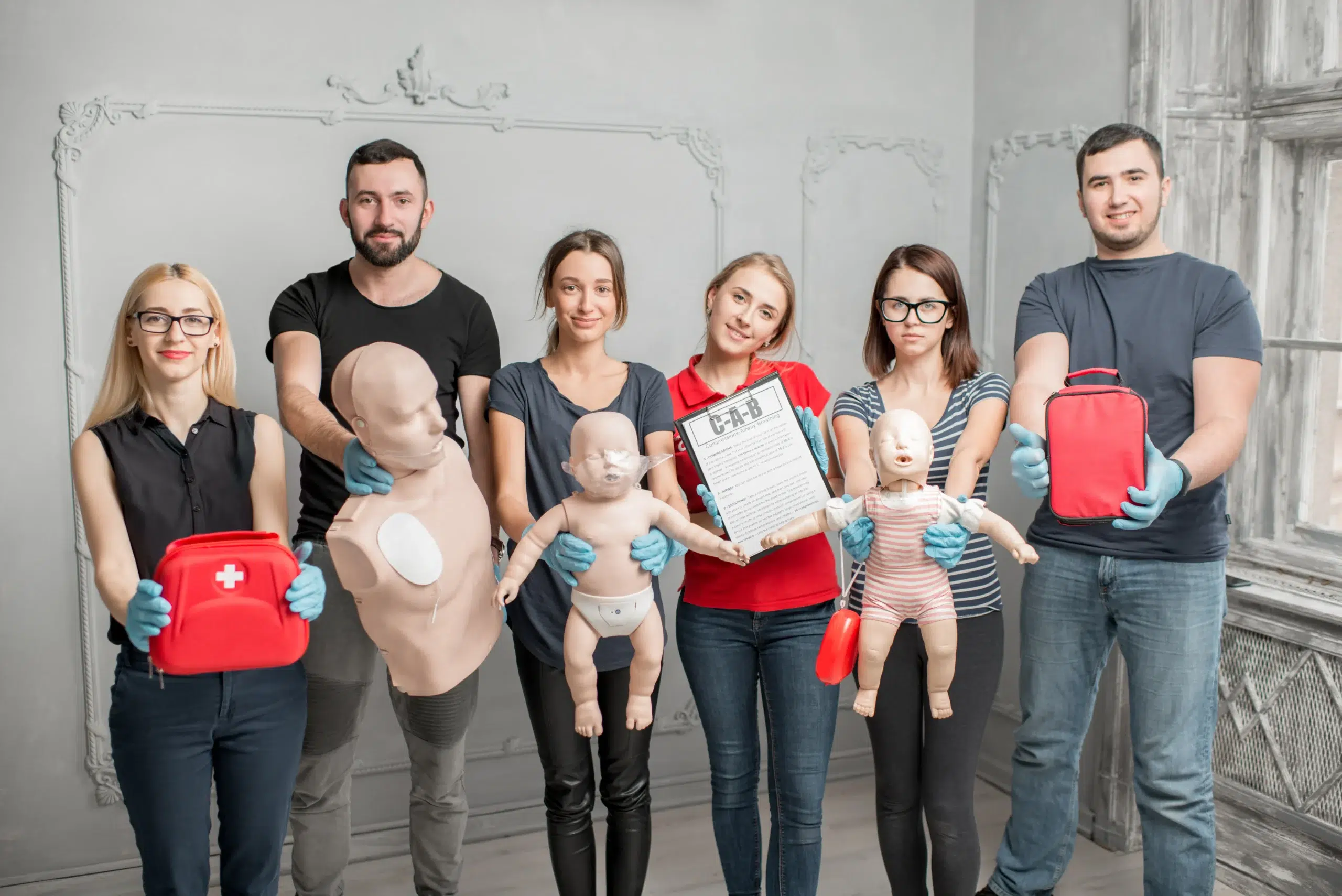Empowering yourself with lifesaving skills is an invaluable asset, both personally and professionally. If you’re in Pleasant Hill, California, and seeking comprehensive training in basic life support, this guide to BLS courses in Pleasant Hill is your starting point. We’ll cover everything you need to know, from the core skills taught in BLS courses to the different learning formats available. Whether you’re a healthcare provider, a student, or someone looking to enhance your preparedness for emergencies, understanding the landscape of BLS courses in Pleasant Hill is essential. We’ll explore reputable training providers, discuss costs and value, and highlight the unique benefits offered by local experts like Pleasant Hill CPR Classes.
Key Takeaways
- BLS certification provides essential lifesaving skills: Learn CPR, AED use, and airway management techniques to confidently respond to medical emergencies. Explore various course formats like in-person, online, or blended learning to find one that suits your needs.
- Select a reputable BLS course provider: Choose a provider offering American Heart Association certifications, convenient scheduling, and a positive learning environment. Consider factors like cost, group discounts, and available resources. Pleasant Hill CPR Classes offers a low price guarantee and specializes in RQI programs for streamlined recertification.
- Stay current with your BLS skills: Renew your certification every two years and explore continuing education to keep your knowledge fresh. RQI programs offer healthcare professionals a flexible and convenient way to maintain their competency.
What are BLS Courses & Why are They Important?
Basic Life Support (BLS) courses teach essential lifesaving skills to healthcare providers and first responders. These courses cover core techniques like chest compressions, rescue breaths, and using an AED to manage cardiac arrest, respiratory distress, and airway obstructions. These skills are absolutely fundamental for anyone working in healthcare or emergency response. The American Red Cross emphasizes how BLS certification prepares you to help during a crisis.
BLS training is especially important in communities that prioritize health and safety education, like Pleasant Hill. Knowing how to respond effectively in a medical emergency can truly make a difference. Bay Area CPR highlights how Pleasant Hill residents understand the value of lifesaving skills training.
BLS certification is often a job requirement in healthcare, and these certifications usually expire after two years. Staying current with your training through recertification courses is key, not just for your career, but for ensuring you can always provide the best possible care. Regular recertification keeps your skills sharp and ensures you’re using the most up-to-date techniques.
Top BLS Course Providers in Pleasant Hill
Finding the right BLS course provider is crucial for a positive and effective learning experience. Here’s a look at some of the top options in Pleasant Hill:
Pleasant Hill CPR Classes
Pleasant Hill CPR Classes offers a comprehensive range of American Heart Association courses, including BLS. They emphasize customer service and convenient options, including daily certification courses and discount group classes. Their specialization in RQI programs makes them a particularly good choice for medical professionals seeking efficient recertification.
Safety Training Seminars
Safety Training Seminars also provides BLS training for healthcare providers in Pleasant Hill, focusing on hands-on training and flexible scheduling. Learn more about their courses on their Facebook page. They offer various courses, including CPR and First Aid, and their BLS certification adheres to American Heart Association standards.
Begin CPR
Begin CPR offers BLS training at its Pleasant Hill location, among others in the Bay Area. As an authorized training provider for both the American Heart Association and the American Red Cross, they offer flexibility in your choice of certification. Visit their website for details on schedules and courses.
American Heart Association Training Centers
Several authorized training centers in Pleasant Hill offer CPR and BLS courses meeting American Heart Association standards. These centers provide a standardized curriculum and ensure high-quality instruction. Find a local training center through the American Heart Association’s website or a general online search. This is a solid option if you’re looking for a widely recognized and accepted certification.
BLS Course Costs & Value
Knowing the price range for BLS certification and what factors influence training value helps you make smart decisions. Let’s break down the costs and key things to keep in mind.
Average Price Range
A two-hour BLS course covering CPR and AED use typically costs around $35 per person. For teams, group discounts often apply for eight or more participants, lowering the overall cost. For instance, a company might pay around $280 for a group of eight employees. See our low price guarantee for affordable options.
Group Discounts & Special Offers
Many CPR training providers offer discounts for group bookings and the convenience of on-site training. This is especially helpful for businesses looking to certify several employees at once. Contact us to discuss custom training for your organization.
Low Price Guarantees
Pleasant Hill CPR Classes offers a low price guarantee in Contra Costa County, ensuring you get the best value for your training. We believe quality training should be accessible to everyone.
Evaluating Course Value
While cost matters, consider other aspects that add to a course’s value. Convenience is important—look for providers with daily classes, extended hours, or blended learning formats. AHA accreditation ensures a high training standard. Excellent customer service from a responsive provider can also significantly improve your learning experience.
BLS Course Formats & Duration
Finding the right BLS course often depends on your schedule and learning style. Luckily, several formats accommodate different needs, so you can choose what works for you.
In-Person Training
In-person BLS training offers a hands-on learning experience. This format provides direct interaction with instructors and classmates, allowing for immediate feedback and practice. For many, the tactile nature of in-person training is essential for mastering these crucial life-saving skills. Pleasant Hill CPR Classes offers in-person training for those who prefer this traditional approach.
Online Options
Online BLS courses offer flexibility for busy schedules or those with limited access to in-person classes. You can learn at your own pace and revisit materials as needed. While the online portion covers theoretical knowledge, these courses typically require an in-person skills session to demonstrate competency and receive your BLS certification. The American Red Cross offers a blended learning format with online coursework and in-person skills sessions.
Blended Learning
Blended learning combines online convenience with the benefits of in-person instruction. You’ll typically complete online modules covering BLS theory, then attend an in-person skills session to practice and test your skills. This approach offers a balanced and effective way to learn BLS.
Flexible Scheduling
Many BLS course providers understand the need for flexible scheduling. Look for providers offering various class times, including evenings and weekends, to accommodate different work schedules and commitments. Some providers also offer group discounts and on-site training, making it easier for organizations to train their employees. Contact Pleasant Hill CPR Classes to find a class that fits your schedule. We’re happy to help!
What to Expect in a BLS Course
Taking a BLS course is a rewarding experience, giving you the confidence to respond to medical emergencies. Here’s a preview of what awaits you:
Core Skills
BLS (Basic Life Support) certification builds upon the foundation of CPR. It’s designed for healthcare providers, first responders, and other professionals who require advanced life support knowledge. You’ll master the essentials of CPR and learn advanced techniques for managing cardiac arrest, respiratory distress, and airway obstructions. This often includes high-quality CPR, using a bag-valve-mask (BVM), and relieving choking. The American Heart Association BLS course covers these core skills and provides a comprehensive understanding of BLS principles.
Hands-On Practice
BLS courses prioritize practical application. Expect hands-on training using mannequins, giving you the opportunity to practice chest compressions, rescue breaths, and other essential techniques. Some courses utilize voice-activated mannequins and offer support by phone during the skills test. This allows you to focus on mastering the skills in a comfortable learning environment. Many providers, including Pleasant Hill CPR Classes, offer a variety of training formats to fit your schedule and preferences.
Assessment & Certification
Your BLS course will conclude with an assessment to evaluate your skills and knowledge. Upon successful completion, you’ll receive your BLS certification, generally valid for two years. Maintaining your certification demonstrates your commitment to providing high-quality care. Look for providers who offer recertification courses to renew your credentials. Pleasant Hill CPR Classes also provides convenient RQI programs, an efficient way for healthcare professionals to stay current with their certifications.
Choose the Right BLS Course
Finding the right BLS course is crucial, whether you’re a healthcare provider, meeting workplace requirements, or simply want to learn valuable life-saving skills. Consider these factors when making your decision:
Healthcare Professional Requirements
For many healthcare professionals and students, BLS certification is a job requirement. It ensures you have the skills to respond to cardiac arrest and other emergencies in medical settings. Pleasant Hill CPR Classes offers the American Heart Association BLS certification required by most healthcare employers, demonstrating a commitment to high-quality patient care and professional standards.
Workplace Safety Compliance
Many workplaces require employees to hold a current BLS certification to respond effectively to medical emergencies. This focus on safety creates a more secure work environment. Even if not explicitly required, BLS training can be a valuable asset, demonstrating your commitment to workplace safety. Pleasant Hill CPR Classes offers convenient on-site corporate training to help businesses meet these needs.
Personal Interest & Skill Development
BLS certification isn’t just for healthcare professionals. Learning these skills empowers you to respond confidently in emergencies, whether at home or in public. It’s a valuable skill set that can make a real difference. Providing basic life support can be personally rewarding, knowing you have the potential to save a life. Contact us to find a class that fits your schedule.
Prepare for Your BLS Course
Getting ready for your BLS course can make a real difference in how well you absorb the information and perform the skills. A little preparation goes a long way!
Prerequisites & Recommendations
BLS certification is often a requirement for healthcare professionals and students. Before signing up, confirm with your employer or program that the course meets their specific requirements. While there aren’t typically formal prerequisites for BLS courses, a basic understanding of medical terminology can be helpful. If you’re brand new to healthcare, brushing up on some key terms might make the course content easier to grasp.
Study Materials & Resources
Many BLS course providers offer study materials to help you prepare. Take advantage of any pre-course videos or manuals to familiarize yourself with the material before class. Even a quick review can significantly improve your understanding and retention of the skills. Some providers clearly differentiate between courses for healthcare providers and the general public, so make sure you select the right course type for your needs. Pleasant Hill CPR classes offers various American Heart Association training courses and has a low price guarantee.
Physical Demands & Accommodations
BLS courses involve hands-on practice of CPR techniques. This includes performing chest compressions and rescue breaths on mannequins. Be prepared for a moderate level of physical activity. If you have any physical limitations, discuss them with your chosen provider beforehand. Reputable providers are generally prepared to offer accommodations to ensure everyone can fully participate in the training. Don’t hesitate to ask about modifications or support – your comfort and safety are important. You can always reach out to Pleasant Hill CPR Classes with any questions.
Maintain Your BLS Certification
Keeping your BLS skills sharp is crucial for providing effective care in emergencies. This section covers how to maintain your BLS certification, including renewal processes, continuing education, and specialized programs like RQI.
Renewal Process & Frequency
BLS certifications are typically valid for two years. It’s essential to renew your certification before it expires to ensure you’re always prepared to respond effectively. Recertification courses are readily available, even if your certification has already lapsed. The American Red Cross offers comprehensive resources and information on BLS certification and renewal.
Continuing Education
Even if your certification isn’t due for renewal yet, continuing education can help you stay up-to-date on the latest BLS guidelines and techniques. Blended learning courses, which combine online and in-person instruction, offer a convenient way to refresh your knowledge and skills. These courses typically take approximately three to four hours to complete, balancing online learning with hands-on practice. Check with your chosen training provider, such as the American Red Cross, for specific course duration and format details. Many providers offer flexible scheduling options to accommodate busy professionals.
RQI Programs
For healthcare professionals seeking a streamlined and efficient way to maintain their BLS competency, Resuscitation Quality Improvement (RQI) programs are an excellent option. RQI offers a more flexible and personalized approach to BLS certification, often allowing participants to complete training modules at their own pace and conveniently within their workplace. Pleasant Hill CPR Classes specializes in RQI programs, providing a modern and convenient certification method for medical professionals in the Pleasant Hill, Walnut Creek, and Concord areas. This innovative approach helps ensure healthcare providers maintain their resuscitation skills and knowledge effectively.
Pleasant Hill CPR Classes: What Makes Us Unique?
We get it—finding the right CPR class can feel overwhelming. At Pleasant Hill CPR Classes, we pride ourselves on offering a learning experience tailored to your specific needs. Whether you’re a healthcare provider seeking recertification or a concerned parent wanting to learn essential lifesaving skills, we’ve got you covered. Here’s what sets us apart:
Customized Training
We understand that every student and organization has unique requirements. That’s why we customize our courses to meet your specific needs. We work with you to ensure the training aligns with your professional obligations, scheduling preferences, and learning style. All our CPR courses adhere to American Heart Association standards, giving you confidence in the quality and relevance of your certification.
On-Site Corporate Training
Need to train your entire team? We offer convenient and cost-effective on-site corporate training. We bring the training to you, minimizing disruption to your workday. Our flexible scheduling options accommodate various work shifts and time constraints. Plus, we offer discounted rates for group training, making it a budget-friendly solution for businesses. Contact us to discuss your company’s training needs and explore our low price guarantee.
Low-Stress Learning
Learning CPR shouldn’t be intimidating. We believe in creating a supportive and low-stress learning environment. Our classes are led by experienced healthcare providers who understand the importance of patient and clear instruction. We encourage questions and provide ample opportunities for hands-on practice, helping you build confidence and master essential skills.
Experienced Instructors
Our instructors are more than just certified trainers—they are healthcare professionals with real-world experience. They bring a wealth of knowledge and practical insights to the classroom, enriching the learning experience and preparing you for real-life emergencies. Learn from the best and gain the skills and confidence to respond effectively in critical situations. We also offer specialized courses, including our RQI programs designed for efficient certification and skill maintenance for medical professionals.
Enroll in a BLS Course
Now that you understand the importance of BLS certification, let’s walk through the steps to enroll in a course that fits your needs. Finding the right course and provider can make all the difference in your learning experience.
Choose a Provider
When selecting a BLS course provider, think about convenience and reputation. Look for providers like Pleasant Hill CPR Classes, conveniently located and offering American Heart Association certifications. If you’re in the Pleasant Hill area, you have several excellent options for BLS, ACLS, and PALS courses nearby. Check if they offer the certifications you need, such as BLS for Healthcare Providers. Consider factors like class size and instructor experience. A smaller class size can often mean more personalized attention.
Registration Process
Registering for a BLS course is usually straightforward. Many providers allow you to contact them directly to schedule a class and ask questions about which course best suits your needs. Some providers may also offer online registration. Look for clear instructions and contact information if you have any questions.
What to Bring
While specific requirements can vary, it’s always a good idea to be prepared for hands-on training. Comfortable clothing is recommended, as you’ll be actively participating in practice scenarios. Bring a notebook and pen to jot down notes, although some providers may offer course materials. Check with your chosen provider about any specific requirements. For example, Safety Training Seminars emphasizes hands-on training, so be ready to actively participate.
Related Articles
- BLS for Healthcare Providers in Walnut Creek: A Complete Guide – Pleasant Hill CPR Classes
- BLS Renewal in Pleasant Hill: A Simple Guide
- BLS CPR Classes in Pleasant Hill, CA – Pleasant Hill CPR Classes
- BLS Renewal in Concord: Your Complete Guide – Pleasant Hill CPR Classes
- ACLS Courses in Concord: Your Complete Guide – Pleasant Hill CPR Classes
Frequently Asked Questions
How much does a BLS course typically cost? BLS course costs vary, but you can expect to pay around $35 for a standard two-hour course covering CPR and AED use. Many providers offer group discounts, which can lower the per-person cost, especially for businesses training multiple employees. It’s always a good idea to check with specific providers for their pricing and any available discounts.
What’s the difference between CPR and BLS certification? CPR training focuses on the core skills needed to respond to cardiac arrest and breathing emergencies. BLS certification builds upon those CPR skills and adds advanced techniques for healthcare providers and professional rescuers. BLS covers a broader range of skills, including using a bag-valve-mask and relieving choking.
How long does it take to get BLS certified? Most BLS courses take around four hours to complete, including both classroom instruction and hands-on practice. Blended learning formats, which combine online coursework with an in-person skills session, can offer more flexibility in terms of scheduling.
How often do I need to renew my BLS certification? BLS certifications are typically valid for two years. Staying current with your certification is essential, especially if you work in healthcare. Many providers offer recertification courses to help you maintain your skills and knowledge. RQI programs offer a more flexible and convenient way for healthcare professionals to stay up-to-date.
What if I have physical limitations? Can I still take a BLS course? Absolutely! If you have any physical limitations, it’s important to discuss them with your chosen course provider beforehand. Reputable providers will work with you to make accommodations and ensure you can fully participate in the training. Don’t hesitate to ask about modifications or support – your comfort and safety are paramount.
